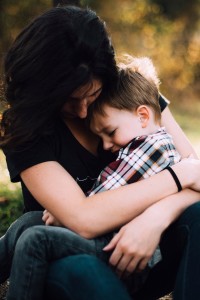As a parent, you may be struggling with how to talk with your children about the recent violence and display of hatred in Charlottesville. In times like this, it’s important to remember that children look to their parents to make them feel safe. This is true no matter what age your children are, from toddlers to adolescents and young adults. The following tips should help.
Talk with your child. Talking to children about their worries and concerns is the first step to helping them feel safe. They need this to be able to cope with the events they are witnessing on TV, the Internet or in real life. What you talk about and how you say it depends on their age, but all children need to know that you’re listening to them.
- Find times when they are most likely to talk. This might occur when you’re riding in the car, before dinner or at bedtime.
- Start the conversation. Let them know that you’re interested in them and how they feel. Tell them you want to know how they’re coping with the information they’ve been exposed to.
- Listen to their thoughts and point of view. Don’t interrupt; allow them to express their ideas and understanding before you respond.
- Make sure they know you’re there for them. Assure them that you are there to provide safety, comfort and support. Give them a hug.
Keep home a safe place. Children of all ages view their home as a safe haven when the world around them seems overwhelming and unhinged. During times of crisis, it’s important to remember that your children may return home to experience that feeling of safety. Help make it a place where your children find the solitude or comfort they need. For instance, you may want to plan a night when everyone participates in a favorite family activity.
Watch for signs of stress, fear or anxiety. After a traumatic event, it’s typical for children (and adults) to experience a wide range of emotions, including fearfulness, shock, anger, grief and anxiety. Your children’s behaviors may change because of their response to the event. They may have trouble sleeping and eating or difficulty concentrating on school work. This is normal for everyone and should begin to disappear in a few months. Encourage your children to put their feelings into words by talking or journaling. Some children may find it helpful to express their feelings through art.
Take a break from the news. Your children may want to stay informed by gathering information about the event from the Internet, television or newspapers. But it’s important to limit their exposure as it could heighten their anxiety and fears. The same goes for you. Step away from the news and engage in activities you enjoy.
Take care of yourself. Take care of yourself so you can take care of your children. Be a role model for your children on how to manage traumatic events. This is best accomplished by maintaining regular schedules for activities such as family meals and exercise to help restore a sense of security and normalcy.
While these tips can be helpful during a time of crisis, keep in mind that there may be incidences when you or your children need the help of a mental health professional.
David Lowenstein, Ph.D. is a psychologist and the clinical director of Lowenstein & Associates, Inc. in Columbus, Ohio. In addition to providing therapeutic services to individuals and families, he offers training and consultation to numerous associations, schools and agencies around the country. Additionally, he is a frequent radio and TV guest and a resource and contributing writer for numerous newspapers and magazines nationwide. Contact Dr. David Lowenstein at 691 South Fifth Street, Columbus, Ohio, 43206 or call 614.443.6155 or 614.444.0432.


